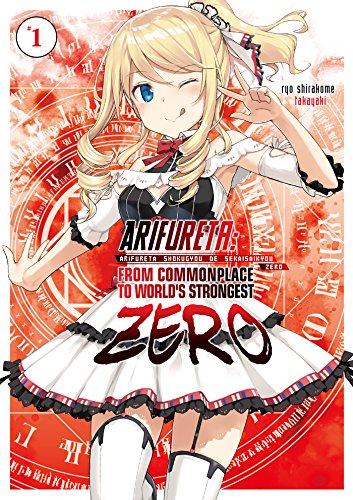By Ryo Shirakome and Takayaki. Released in Japan as “Arifureta Shokugyou de Sekai Saikyou” by Overlap. Released in North America digitally by J-Novel Club. Translated by Ningen.
I’ve talked before about Hajime as Christ figure, and Hajime as simply another example of the overpowered hero going after the kids that bullied the author in middle school, but in this book it’s also worth taking a look at something that has remained a core part of Hajime’s character despite every possible attempt to extract it: Hajime the nerd. (Yes, yes, I know, chuuni. I never saw that anime, so feel uncomfortable using the expression.) Hajime’s inner monologue has had the occasional taste of otaku culture throughout the series, but this volume really sees it in full flower. When he’s in the bar gathering information, and has to impress the bartender, you can almost hear him squeeing. And while the core purpose of his “arranging a distraction” was to humiliate and get a bit of revenge on Shizuku for laughing at him, the fact that he dresses them all as a sentai team also shows this off. Hajime is badass, but still a nerd.
We seem to have run out of cover girls, as we’re back to Yue. (Technically it should be Liliana, but honestly ignoring her in favor of Yue is perfectly in character.) That said, in terms of content, Shea should really be the one on the cover, as she and her rabbit tribe own this book. Considering that turning the rabbits into savage killers was a passing joke in the 2nd book, it’s become quite a large thing, and the best running gag of the volume was everyone giving Hajime the stink-eye as they realize how much he brainwashed everyone into being Rambo. (They also inherited his nerd tendencies, coming up with hilariously bad “names” for themselves.) Since the Empire is doubling down on Beastmen being enslaved, the rabbits take matters into their own hands – with a little help from Hajime, admittedly, but mostly entirely on their own – to convince the Emperor to change his mind. Again, those who like over the top battles will be very happy.
The demons also get their asses handed to them by the rabbits, but they have a much stronger response, coming up with 400 or so of the Angels that Hajime had a little trouble with in Book 6. I suspect the eighth volume will deal with the fallout from that. One last thing that impressed me, though, was the final extra story. Usually in light novels these extra stories are pure fanservice, but this one not only advances the plot but makes a nice refreshing change from the “all religion is evil” trope we’ve seen in Arifureta and other light novels. A new pope is appointed to fill the void caused by the events of Book 6, and he proves to be an excellent choice, coming across both Yuka (the girl Hajime saved in Book 1) and Aiko and helping them get over their dithering and try to move forward. It comes across as a confessional, and this is exactly the sort of thing that confessions should be about. I really liked it.
A very strong Arifureta book. Except for Tio. God, I hate Tio. More accurately, I hate the way the author writes Tio.





